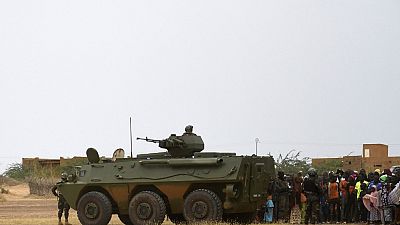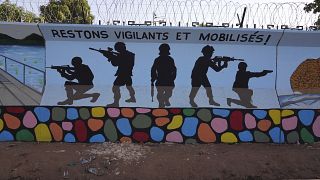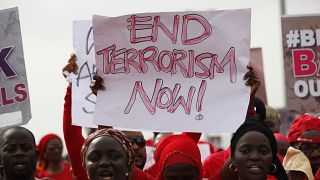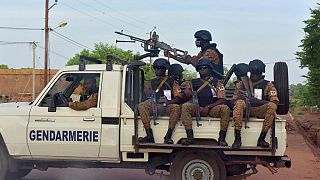Terrorism
The day terror group the Islamic State (IS) self-proclaimed caliphate in Syria and Iraq is long gone. However, today, the jihadist powerhouse is surviving in the Levant but expanding in Africa, where its affiliates promote a deadly and thriving modus operandi.
Two new official IS provinces ("wilayas") were created in March in the Sahel and in May in Mozambique. Soon after, an editorial in the infamous publication al-Naba which backs jihadi propaganda. The IS weekly encouraged Muslims to join Africa, before videos from Syria and Iraq praised fighting brothers in Africa.
"The fact that they are calling to join the EI in Africa is very significant," says Damien Ferré, founder of Jihad Analytics a group which analyzes global and cyber jihad. "They ackknowledge that at the moment, they lack the capacity to pursue the caliphate project (...) but there is definitely a desire to put marbles on Africa."
In 2021, al-Naba has devoted 28 out of 52 issues to Africa, he said. Now, the majority of IS's provinces, seven out of 13, are based on the continent.
But experts are unanimous: the so-called African jihad is not the twin of its avatar in the Levant. Its motives are profoundly diverse because they are imbued with local dynamics.
"The African jihad is tinged with something more than radicalism," says Hassane Kone, a researcher at the Institute for Security Studies (ISS) in Dakar. "Many people have put their foot down for reasons that are not necessarily religious," he added to AFP, citing exclusion, poverty, and military abuses. For all that, "IS capitalizes on the African jihad to continue to exist".
Expension strategy
Djallil Lounnas, a researcher at the Moroccan university of Al Akhawayn, confirms a premeditated strategy of the IS since 2017 "in the face of the certainty of the fall" of the caliphate. The African allegiances to the powerhouse are "mutually beneficial: one continues to exist and give an impression of power, and the latter benefit from the IS brand."
In the Democratic Republic of Congo (DRC), the Allied Democratic Forces (ADF), officially linked to the IS since 2017, have since copycatted the IS's methods, according to the Combating Terrorism Center (CTC) journal at the U.S. Military Academy West Point. "The ADF began in the summer of 2021 to release beheading videos," demonstrating their willingness to "align" themselves with "the global brand of the IS," it estimates, similarly analyzing their use of suicide attacks.
The ADF has also seen an influx of fighters from Tanzania, Burundi, Kenya and South Africa, according to the CTC. And links have been established with Arab members of the IS. The Congolese army has announced the arrest of a Kenyan of Omani origin, an Egyptian and a Jordanian within a few months.
In a propaganda video, the first is seen supervising the execution of a Congolese soldier with a machete.
Around Lake Chad, "advisors and experts are sometimes mentioned who come to help at difficult times with decisions and reorganizations," Vincent Foucher, a researcher at the French National Center for Scientific Research (CNRS) explains.
In the East, Elie Tenenbaum, from the French Institute of International Relations (IFRI), continues, "there are Ugandans who travel throughout southern Africa. These are poorly controlled crossing points," he said, referring to "old trafficking points" and individuals who act "sometimes in a free spirit."
Anti-terrorist fight
But as unstructured as it is, the growth of the EI is benefiting from the weakness of the fight against terrorism. Joint actions between states are not commonplace. The Congolese and Ugandan armies joint operation against the ADF or the SADC anti-terrorism force against the IS insurgents in Mozambique are rare examples.
In the Sahel, France is leaving Mali after nine years of counterterrorism and the UN mission is on hold.
"Coordination is going badly," Hans-Jakob Schindler, director of the NGO Counter-Extremism Project (CEP) and former UN expert on jihadism, observes. As he contemplates the scourge of jihadism, he regrets the departure of the French: "Apart from France, in the European Union, is this a priority issue? No! We ignore it to our own detriment".














Go to video
Benin says 54 soldiers killed in Islamic militant attack
Go to video
Burkina Faso military government says it thwarted "major" coup attempt
00:58
U.S. airstrikes kill 20 at Yemen oil port held by Houthis
Go to video
Scores killed in attack by gunmen in central Nigeria
Go to video
Army airstrike on a market kills 18 in Mali
02:10
Somali forces end a 24-hour siege by al-Shabab militants on a hotel